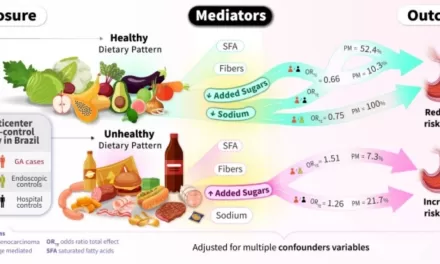A new study sheds light on the profound impact that bullying in high school can have on teens’ outlook for the future, extending beyond the well-documented effects on mental health. According to recent research, being bullied during ninth grade can significantly lower adolescents’ expectations for their educational and career prospects by the time they reach 11th grade.
The study, conducted by a team of developmental psychologists, tracked 388 high school students over the course of three years. Researchers found that teens who experienced frequent bullying in their early high school years reported a marked decline in their confidence to achieve their desired level of education, secure fulfilling jobs, and earn enough money to support themselves in the future.
On average, students who were bullied in ninth grade saw their future expectations drop by approximately eight percentile points compared to their non-bullied peers. This decline in optimism persisted even after controlling for various factors, including race, gender, socioeconomic status, and prior academic performance.
Exclusion-Based Bullying Has the Strongest Impact
The study identified that one form of bullying—peer exclusion—had the most detrimental effect on teens’ future aspirations. This type of victimization includes being deliberately ignored or excluded from social activities, or experiencing damage to social relationships. Students who suffered from this form of bullying were more likely to report depressive symptoms by 10th grade, which in turn contributed to their lower future expectations by the following year.
Interestingly, the study noted that overt bullying, such as physical aggression or direct verbal abuse, did not have the same negative impact on teens’ educational or career expectations. The researchers theorize that because adolescence is a time when social relationships become increasingly important, bullying that disrupts these relationships can lead to feelings of isolation and long-term pessimism about the future.
Depression Linked to Declining Future Expectations
The study highlighted the role of depression as a key mediator in the relationship between bullying and future pessimism. Adolescents who were excluded or socially victimized in ninth grade displayed more symptoms of depression in 10th grade, which was strongly associated with their lower expectations for future success in 11th grade.
“Bullying that damages teens’ social reputations or friendships seems to trigger a cycle of hopelessness,” said the study’s lead researcher. “The depressive symptoms these teens experience as a result of bullying leave them feeling less capable of achieving their educational and career goals.”
Long-Term Implications for College and Career Success
Previous research has shown that adolescents with low expectations for their future are less likely to pursue higher education or secure high-paying jobs in adulthood. This new study suggests that bullying early in high school could play a pivotal role in shaping teens’ long-term aspirations, potentially limiting their success later in life.
The findings highlight the importance of early intervention. Programs that prevent bullying, such as bystander intervention initiatives and targeted support for victims, could not only improve teens’ mental health but also help them maintain confidence in their future potential.
Next Steps in Research
The research team plans to continue following the students who participated in this study as they transition to college and the workforce. The goal is to better understand how bullying influences young people’s development over time and identify effective strategies for preventing its long-term effects.
“We want to ensure that all adolescents feel confident in their ability to thrive as adults,” said the lead researcher. “By understanding the factors that contribute to this loss of optimism, we can better intervene to protect teens from the damaging effects of bullying.”
Investing in proven anti-bullying strategies, the researchers argue, could help break the cycle of hopelessness and provide teens with the support they need to reach their full potential.












